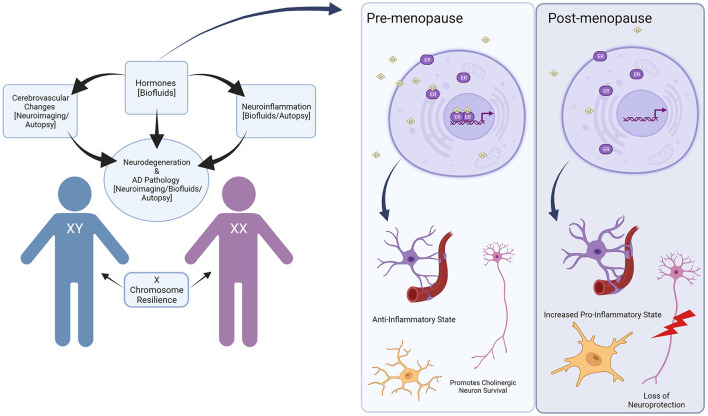Figure 1.
Overview of sex differences in Down syndrome and Alzheimer's disease. Hormones can contribute to cerebrovascular changes and neuroinflammation in the brain, which can lead to increased Alzheimer's disease pathology. These changes can be identified through neuroimaging, biofluids, and autopsy studies, though only a handful have investigated sex differences directly. Hormones such as estrogen can have a particularly beneficial effect, which is then withdrawn during hormonal events such as menopause. In the pre-menopausal state, bioavailable estrogen (represented as E2) acts on estrogen receptors (ER) to promote an anti-inflammatory state in the brain while maintaining neuronal health. In the post-menopausal state, lower levels of estrogen lead to increased pro-inflammatory states and loss of neuroprotection. In addition to hormonal effects, the X chromosome may contribute to resilience in aging and improve cognitive outcomes, though this has not been studied in the context of DS. Created with BioRender.com.

